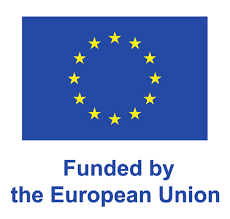When we were first introduced to TechSoup’s Digital Activism Program through the Local Actions Plans, we recognized its potential and decided to develop something that would address the already prevalent basic behaviors among the Portuguese population. This was prompted not only by the rise of the extreme right but also by the increasing spread of fake news. In Europe, these issues have significantly contributed to the emergence of more negative attitudes towards people considered "different."
Portugal is an “old country”, both in terms of average age and mentality. Many individuals seem unable to recognize the significant changes happening in the world, often longing for what they consider a golden age – in our case, the era of the Estado Novo dictatorship. This mentality, combined with various forms of prejudice, is particularly concerning given our location in an area rich in cultural diversity.
To address these issues, we decided to invite several individuals who are active agents against disinformation for an interview. We prepared 10 questions aimed at understanding their daily challenges, exploring effective strategies to combat prejudice, and examining the impact of Fake News on these matters. As we were a small team, we aimed to make the most of our surroundings and facilities. We decided to invite locals to interview us, focusing on conducting at least seven interviews to ensure a diverse selection of content. The interviews would take place in the studios of Radio Sintoniza-T, as it provides the necessary equipment and conditions suitable for this type of content creation.
With our ideas laid out, our plan was to create a series of video interviews, which would then be converted into audio format for broadcast on the daily radio show and also distributed as a podcast. We then decided that this was the right style to tackle this project: through a series of simple questions, but with the right depth to properly address an increasingly relevant topic, especially in Portuguese society.
Our activities
We prepared a series of interviews dedicated to knowing active people in society, fighting against disinformation and learning how their day-to-day life is dedicated to helping create a better society, free from the ideas of past generations. The interviews were all conducted with the intent of understanding the direct relations that certain behaviors and ideals can bear in our society. Over the course of 6 months, we tried to produce a diverse case study, focused on the various areas of possible prejudice. After conducting the possible interviews, we shared the results via social media (Youtube, Facebook, Instagram), and also released them in podcast format.
Target groups
We essentially sought out members of the communities most affected by prejudice. Be it around skin color, sexual orientation, or religion. Our focus was on connecting with individuals having stories or experiences related to the suffering caused by the “old Portuguese mindset”. Our focus was to talk to active members of society, who have somehow experienced some kind of bias, but at the same time, are partaking in movements that wish to rebel against the discrimination present in present society.
Results
We felt that there was still a lot of fear. A fear of speaking out and a fear of being present in some of the actions that were organized. During the project, we tried to talk to many organizations relevant in Portugal, but never got an answer. In many cases, people just never wanted to be in the spotlight, maybe out of fear of what could happen to them. However, people who were able to talk to us showed us that there were two ways to take this idea. On one end, there is a group of people who feel and know racism and discrimination daily and try to fight it with knowledge and words to make a stronger point. On the other end, some don’t perform that kind of action directly, yet understand that it is a common problem, especially in Portuguese society. Thus, they have an opportunity to fight those wrongful attacks through projects, such as this one, that opens the topic to more community members, inside and outside: older people or young people, who are influenced by the same actions. We need to keep these kinds of projects going, as they directly support the open debate about real-life prejudice, and show that social media and radio are important tools in fighting this kind of behavior. We believe that our actions were just the first phase, creating a base to grow into something bigger and more powerful.
You can see the examples of our work here:
Author: Alexandre Venceslau Santos
Radio Sintoniza-T project was coordinated by Lusófona University in Portugal.
The Local Action Plans are part of the Empowering Europeans Against Disinformation (EEAD) project, implemented within TechSoup’s #DigitalActivismProgram, funded by the European Union.

